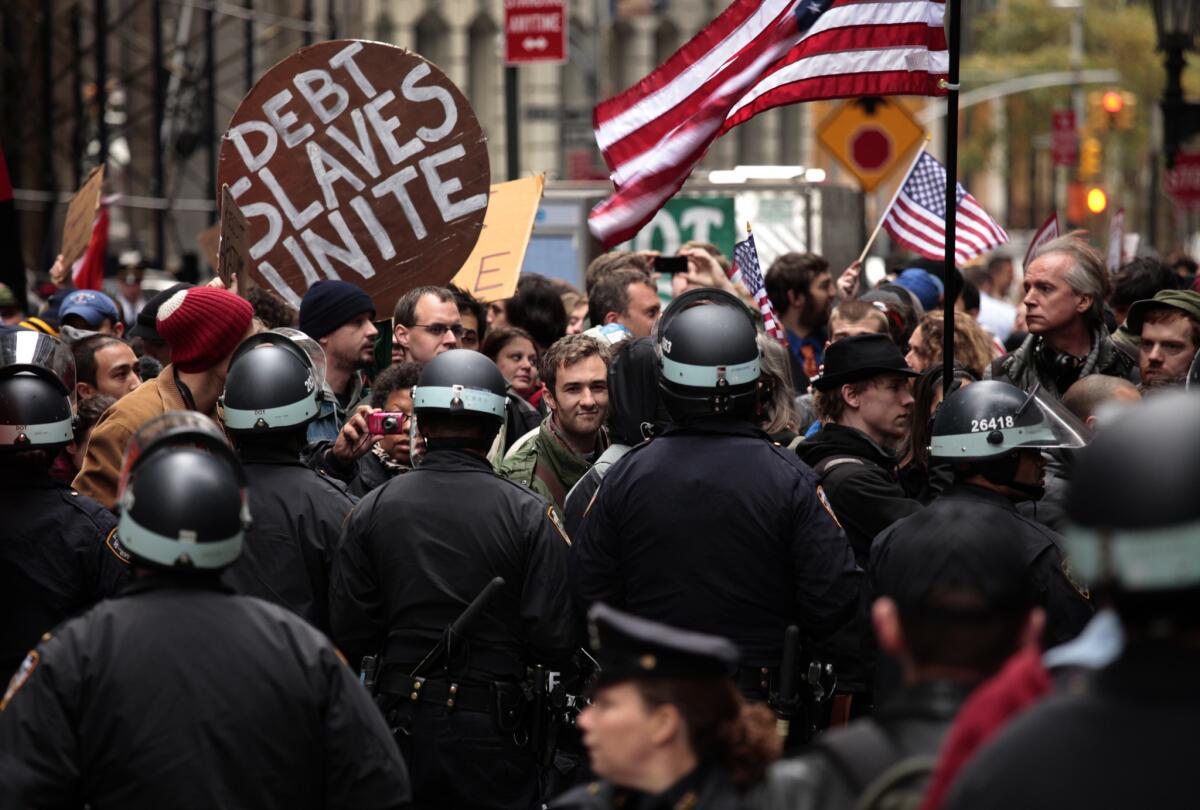Watch a conservative economist try to wish income inequality away

As America’s problems with economic inequality have moved toward the political front burner, conservative economists have stepped up their efforts to explain that it doesn’t really exist.
Few, however, will be able to top University of Chicago economist John Cochrane, who delivered a sneering dismissal of inequality, full of straw-man arguments, at a Hoover Institution conference Friday. Cochrane posted his remarks on his blog, “The Grumpy Economist,” so you’ll be able to read along with me.
First, some background about Cochrane. He’s one of the leading lights of the University of Chicago, where he’s a professor of finance at the business school; he’s also a senior fellow at the Hoover Institution and an adjunct scholar at the libertarian Cato Institute.
Cochrane is a critic of Keynesian policies such as the recent economic stimulus. He has no use for the Affordable Care Act, the Dodd-Frank financial sector reforms, or anti-poverty programs as they’ve developed since the 1960s. He appears to believe that Social Security and Medicare “entitlements” are unsustainable. Thus far, he sounds like Paul Ryan with an economics Ph.D. (from Berkeley). For years he has conducted a not-very-friendly debate about macroeconomics with liberal economists Paul Krugman and Brad DeLong.
In Cochrane’s world, social programs are a burden on the poor. Almost all taxation (of the wealthy) is “confiscatory.” Arguments that inequality is politically and socially destabilizing are bunk: “Inequality was pretty bad on Thomas Jefferson’s farm. But he started a revolution, not his slaves.”
The premise of Cochrane’s Hoover Institution talk was that “it is a mistake to accept the premise that inequality, per se, is a ‘problem’ needing to be ‘solved,’ and to craft ‘alternate solutions.’”
“Suppose,” he says, “a stack of money blows into the room. Some of you get $100, some get $10. Are we collectively better off? If you think ‘inequality’ is a problem, no.... We should, in fact, take something from people who got nothing, to keep the lucky ones from their $100.”
Right there, obviously, Cochrane is misstating the issue. “Inequality” is not about who gets a piece of a windfall; it’s about how compensation for actual effort is apportioned--more specifically, how wealth created by productivity is distributed. In the U.S., productivity gains have diverged sharply from wage growth since the 1970s, as the profits have flowed upstream to shareholders. That’s inequality, not who grabs dollars wafting through a room.
Cochrane merely dismisses concerns, recently expressed by analysts at Standard & Poor’s, that rising inequality is a threat to the U.S. economy because it saps the ability of lower-income people to afford basic goods.
He tries to divert our attention by asserting that the real income inequality problem isn’t within the U.S., but between the U.S. and the Third World. “Around the world, about a billion people still live on $2 a day, have no electricity, drinking water, or even latrines,” he said. “If you care about ‘inequality,’ minimum wage earners in the U.S. should be paying Piketty taxes.” (He’s talking about taxes levied on the wealthy to equalize wealth.)
Nice misdirection! This point is related to the claim, most recently advanced by the Heritage Foundation, that America’s poor live pretty well, now that they’ve got household appliances and indoor plumbing, and they should stop grousing. As an argument about U.S. inequality, it’s utterly irrelevant.
Cochrane expands upon this notion by asserting that “political, social, cultural inequality, inequality of lifespan, of health, of social status, even of much schooling are all much flatter than they used to be.”
Is that so? Across the country, Republican office-holders are systematically rolling back voting rights with measures aimed at disenfranchising the poor and minorities. More than 4 million Americans are excluded from the benefits of the Affordable Care Act because their states refuse to expand Medicaid.
Lifespan? It’s true that from 1950 to 2010, average life expectancy of black Americans at birth increased by more than 14 years, to 75.1, while that of white Americans increased by 9.8 years; but whites still have a life expectancy nearly four years longer than blacks.
For expectancy at age 65, moreover, the gap has widened. Average life expectancy for blacks was almost equal to that of whites in 1950. In 2010, blacks’ life expectancy was nearly a year and a half shorter than whites’. That’s moving backward, not getting “flatter.”
Cochrane also airs a variation on the “undeserving poor” theme last sounded by Rep. Paul Ryan in his “opportunity grant” proposal: “A segment of America is stuck in widespread single motherhood, leading to terrible early-child experiences, awful education, substance abuse, and criminality,” Cochrane declared. “70% of male black high school dropouts will end up in prison, hence essentially unemployable.... Less than half are even looking for legal work.”
This is close to declaring that income inequality is a function of low moral standards among the poor. As a diagnosis of U.S. poverty, it ignores lessons taught by events as recent as Ferguson, Mo., where the systematic economic assault on black residents is painfully well-documented. (See our post on the topic here.)
Cochrane trivializes the economic pathology afflicting the poor by stating that it “has nothing to do with whether hedge fund managers fly private or commercial.” (No, it doesn’t; what’s your point?) He adds that “it is immune to floods of government cash.” This is verifiably untrue.
The fact is that government programs have been shown to moderate poverty, keep food on the table, improve educational outcomes and improve opportunities for work. Throwing black males in jail for minor infractions, and piling fines on black families for failing to pay nuisance fines they can’t afford in the first place--that’s part of the problem that Cochrane blithely glides over.
There’s much more, but that should give you a flavor. Put it all together, and Cochrane offers a rationale for inequality that his audience at the Hoover Institution’s conference on inequality undoubtedly found bracing and comforting. But he can’t make the basic facts go away.
Keep up to date with The Economy Hub by following @hiltzikm.







